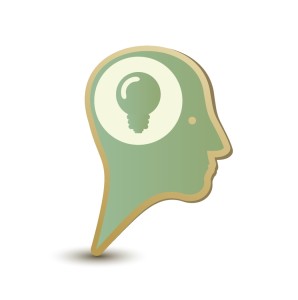
“Our oldest son was so quiet when he was little. He played by himself and never caused us a moment’s trouble. He didn’t talk much or play with his brother. If only someone would have told us that this wasn’t normal. Perhaps things would be different.” Philippe, an overseas executive, told us about his autistic adult son over dinner.
“We had all the resources–money as well as excellent medical and educational facilities nearby–but we didn’t realize anything was wrong. How I wish we’d known what to look for.”
As parents, we are in a unique position to see our children’s strengths and weaknesses, if we have some knowledge about development.
In his book A Mind at a Time, Dr. Mel Levine encourages parents to be their child’s teacher and advocate. Dr. Levine believes parents can equip themselves with knowledge and open-mindedness to become “well-informed mind watchers.”
How our friend Philippe would have loved Dr. Levine’s book.
To track childhood development, Dr. Levine compares observable behavior in children with skills in eight neurodevelopmental systems.
These eight learning systems include Attention, Temporal-Sequential Ordering, Spatial Ordering, Memory, Language, Neuromotor Functions, Social Cognition and Higher Order Cognition.
Parents, by observing and recording incidents, can begin to see patterns of their children’s strengths, weaknesses, special talents and affinities.
Each mind is unique and has a special way of developing.
By watching our children’s personalities unfold, Dr. Levine says we will discover our children’s gifts and talents, as well as obstacles to their development. Our parenting job is to nourish strengths and remove obstacles to our children’s development.
Many times, developing a strength can be as challenging as removing an obstacle. A talent that needs expert teachers, along with time and money, can be as taxing to a parent as a developmental delay.
When children have extreme needs, parents can feel hopeless and helpless.
It’s easy to become defensive when people comment on our children’s behavior or development. The love and joy we feel as parents also can skew our perception of what our child needs to fully develop his or her potential.
Kathy, a preschool and elementary classroom sign-language interpreter, related her experience of how difficult it is to get parents of young children to accept an impairment.
“After parents realize their child is hearing-impaired, the first year is usually spent in anger, denial and grief. The second year is spent trying to figure out what therapies are appropriate and necessary. Finally, in the third year after a diagnosis, the child gets the help he or she needs. In the process, the child has lost two critical years of language development. It’s easy to tell the children whose parents accepted the situation and got treatment started early apart from those children whose parents didn’t. What I would wish for the new children I work with is this: that their parents take a deep breath, roll up their sleeves and get to work to help their child.”
Observing our children will help us see who they really are, not who we want them to be.
With this knowledge, we will be able to help them strengthen their strengths and bolster their weaknesses. By observing, we can assist our children in becoming the unique, wonderful people they are meant to be.
Watching our children’s minds with intelligence, compassion and patience can be the greatest gift we’ll ever give. It may be the most important work we ever do.

